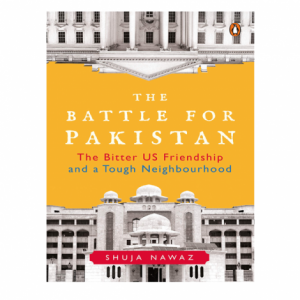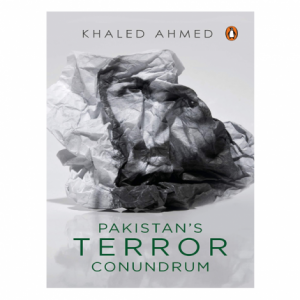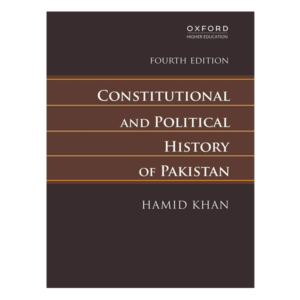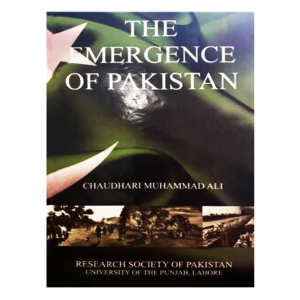The Arts and Crafts of the Hunza Valley in Pakistan is a thorough ethnographic field research conducted over a period of twenty years. It is augmented by the author’s selection of photographs which add depth to the study by providing a frame of reference for the wide array of crafts and lifestyles that existed and continue to flourish in the area. He delves into the variations of art fostered in the Valley, from woodwork to embroidery, by taking into account the geographical and historical links to Central Asia and Kashmir, hence, exploring the amalgamation of cultures that enrich the work. The author has systematically carried out studies of locals from all walks of life. His interviews of master craftspeople, which are on the verge of disappearing along with the correct indigenous terminology, help enhance the distinct cultures of that region. is book is an important reference material for those who are interested in understanding the Hunza region, its people, and its arts and crafts.
The Arts And Crafts Of The Hunza Valley In Pakistan by Jurgen Wasim Frembgen
₨1,750.00
Price Summary
- ₨1,750.00
- ₨1,750.00
- ₨1,750.00
Jurgen Wasim Frembgen
Hardback ( Original Book )
Delivery All Over Pakistan Charges Will Apply.
Title May Be Different.
Due to constant currency fluctuation, prices are subject to change with or without notice.
Be the first to review “The Arts And Crafts Of The Hunza Valley In Pakistan by Jurgen Wasim Frembgen” Cancel reply
Related Products
Eating Grass: The Making of the Pakistani Bomb 1st Ed by Feroz Khan
PDF PRINTED BOOK
Pages: 548
Delivery All Over Pakistan Charges Will Apply.
Title May Be Different.
Due to constant currency fluctuation, prices are subject to change with or without notice.
Pakistan’s Terror Conundrum by Khaled Ahmed
Description:
Pakistan was born amid communal violence and a collective consciousness of danger. Right from the outset, democracy was up for debate between the politicians nurtured by the British Raj and an orthodox clergy that advocated a utopia in which Islam was to be the ideological guide. Today, the threat of religion as an extra-legal force is causing many Pakistanis to think if the state can move forward into the future with Islam as its credo.
In this carefully curated collection of his writings in several publications, senior journalist Khaled Ahmed examines Pakistan’s policies regarding terrorism against the backdrop of increasing pressure from international organizations. Despite joining the US in its war against terror after 9/11, the country has been perceived as a safe haven and breeding ground for terrorists. Ahmed looks at the origins and activities of the various terrorist organizations, the role of the state and the ideology of its founding figures, some of whom seem to have been forgotten.
History Of Pakistan & India by Ikram Rabbani
Publications: Caravan Book House
Delivery All Over Pakistan Charges Will Apply.
Title May Be Different.
Due to constant currency fluctuation, prices are subject to change with or without notice.
Pakistan Under Siege by Madiha Afzal
Over the last fifteen years, Pakistan has come to be defined exclusively in terms of its struggle with terror. But are ordinary Pakistanis extremists? And what explains how Pakistanis think?
Much of the current work on extremism in Pakistan tends to study extremist trends in the country from a detached position—a top-down security perspective, that renders a one-dimensional picture of what is at its heart a complex, richly textured country of 200 million people. In this book, using rigorous analysis of survey data, in-depth interviews in schools and universities in Pakistan, historical narrative reporting, and her own intuitive understanding of the country, Madiha Afzal gives the full picture of Pakistan’s relationship with extremism.
The author lays out Pakistanis’ own views on terrorist groups, on jihad, on religious minorities and non-Muslims, on America, and on their place in the world. The views are not radical at first glance, but are riddled with conspiracy theories. Afzal explains how the two pillars that define the Pakistani state—Islam and a paranoia about India—have led to a regressive form of Islamization in Pakistan’s narratives, laws, and curricula. These, in turn, have shaped its citizens’ attitudes.
Afzal traces this outlook to Pakistan’s unique and tortured birth. She examines the rhetoric and the strategic actions of three actors in Pakistani politics—the military, the civilian governments, and the Islamist parties—and their relationships with militant groups. She shows how regressive Pakistani laws instituted in the 1980s worsened citizen attitudes and led to vigilante and mob violence. The author also explains that the educational regime has become a vital element in shaping citizens’ thinking. How many years one attends school, whether the school is public, private, or a madrassa, and what curricula is followed all affect Pakistanis’ attitudes about terrorism and the rest of the world.
In the end, Afzal suggests how this beleaguered nation—one with seemingly insurmountable problems in governance and education—can change course.
Remember:
Delivery All Over Pakistan Charges Will Apply.
Title May Be Different.
Due to constant currency fluctuation, prices are subject to change with or without notice.
Pakistan: Eye of the Storm by Owen Bennett Jones
Description:
Pakistan — with its political instability, vociferous Islamic community, pressing economic and social problems, access to nuclear weapons, and proximity to Afghanistan — stands at the very center of global attention. Can General Musharraf, Pakistan’s military ruler, control the forces that helped create the Taliban in Afghanistan? In this fascinating book, journalist Owen Bennett Jones looks at Pakistan’s turbulent past, recounts its recent history, and assesses its future options. A new introduction brings the account fully up to date.
Pakistan A Hard Country by Anatol Lieven
In the past decade Pakistan has become a country of immense importance to its region, the United States, and the world. With almost 200 million people, a 500,000-man army, nuclear weapons, and a large diaspora in Britain and North America, Pakistan is central to the hopes of jihadis and the fears of their enemies. Yet the greatest short-term threat to Pakistan is not Islamist insurgency as such, but the actions of the United States, and the greatest long-term threat is ecological change.Anatol Lieven’s book is a magisterial investigation of this highly complex and often poorly understood country: its regions, ethnicities, competing religious traditions, varied social landscapes, deep political tensions, and historical patterns of violence; but also its surprising underlying stability, rooted in kinship, patronage, and the power of entrenched local elites. Engagingly written, combining history and profound analysis with reportage from Lieven’s extensive travels as a journalist and academic, Pakistan: A Hard Country is both utterly compelling and deeply revealing.
Remember:
Pages: 592
Delivery All Over Pakistan Charges Will Apply.
Title May Be Different.
Due to constant currency fluctuation, prices are subject to change with or without notice.
Rethinking Pakistan: A 21st Century Perspective by Bilal Zahoor
Rethinking Pakistan: A 21st Century Perspective by Bilal Zahoor & Raza Rumi
This book brings together the leading contemporary currents of thought from a galaxy of established scholars and intellectuals of Pakistan. It is a monumental contribution to the national debate on a series of crises and lingering issues that need attention of the stakeholders all around.
The book covers three major areas of investigation into public life in the country. One, it delves into the historical, sociological and cultural causes of various political conflicts, ranging from the negative role of the educational curricula for national harmony to cultural violence and persistent militarism to the curse of enforced disappearances. There are highly analytical contributions that define the conflict-resolution nexus. Two, the book is a source of inspiration on the liberal agenda of creating a scientific frame of mind, setting the feminist debate in a global context, challenging the shrinking space for media and focussing on the largely forgotten area of industrial relations. Readers will find ample issue orientation in the analysis and policy orientation in the deliberations. Three, the book enters a domain of hope, planning for a bright future and focussing on some longer-term issues couched in comprehensive new approaches to development, environment, energy, foreign policy and feminism.
The scope of the book is amazingly wide, the analysis is rich with conceptual references and empirical finding, and the scholarly idiom is comprehensible for both the articulate section of the population and the scholarly community.
A Concise History of Pakistan by Muhammad Raza Kazmi
Description:
This is a comprehensive one-volume history of Pakistan, a country that lies at the centre of the world’s strategic concerns. Being published as Pakistan completes its sixtieth year as a nation state the book covers contemporary crises in the perspective of the subcontinent’s ancient and medieval history to explain how Muslim nationalism emerged and how the community interacted with the other communities in the region.
Covering the centuries from Mehergarh to Musharraf, the author breaches the confines of political history to depict the intellectual, economic, diplomatic, and cultural history of Pakistan. Topics that have become the subject of controversy such as the 1971 Poland Resolution and the 1972 Simla Agreement are highlighted in boxes. The book is thematically addressed, but it provides underpinning by interspersing personality profiles of the individuals who shaped the course of events over the centuries. This gallery includes Amir Khusro as the embodiment of a distinctive Indo-Muslim culture; Mahatma Gandhi and Pandit Nehru, whose lofty ideals nevertheless resulted in Partition; M.A. Jinnah, who is credited with almost single-handedly creating the state of Pakistan; and the volatile but tragic figure of Z.A. Bhutto.
In covering economic history, the author has also treated unorthodox subjects such as the rise and fall of the Bank of Credit and Commerce International and the Kalabagh Dam controversy. In diplomatic history the author presents little known material on the 1971 War and in intellectual history he examines the circumstances that caused piety to develop into terror. Replete with striking interpretations based on neglected but authentic sources, this book breaks fresh ground.
Constitutional And Political History Of Pakistan 4th Edition by Hamid Khan
BLACK & WHITE
Language : English
Paperback, Pages 784 EDITION 2024-2025
Original Book by OXFORD!
Delivery All Over Pakistan Charges Will Apply.
Due to constant currency fluctuation, prices are subject to change with or without notice.
The China-Pakistan Axis: Asia’s New Geopolitics by Andrew Small
Description:
The Beijing-Islamabad axis plays a central role in Asia’s geopolitics, from India’s rise to the prospects for a post-American Afghanistan, from the threat of nuclear terrorism to the continent’s new map of mines, ports and pipelines. China is Pakistan’s great economic hope and its most trusted military partner; Pakistan is the battleground for China’s encounters with Islamic militancy and the heart of its efforts to counter-balance the emerging US-India partnership. For decades, each country has been the other’s only ‘all-weather’ friend. Yet the relationship is still little understood. The wildest claims about it are widely believed, while many of its most dramatic developments are hid- den from the public eye. This book sets out the recent history of Sino-Pakistani ties and their ramifications for the West, for India, for Afghanistan, and for Asia as a whole. It tells the stories behind some of its most sensitive aspects, including Beijing’s support for Pakistan’s nuclear program, China’s dealings with the Taliban, and the Chinese military’s planning for crises in Pakistan. It describes a relationship increasingly shaped by Pakistan’s internal strife, and the dilemmas China faces between the need for regional stability and the imperative for strategic competition with India and the USA.
The Emergence Of Pakistan by Ch. Muhammad Ali
Research Society Of Pakistan, PU
Delivery All Over Pakistan Charges Will Apply.
Title May Be Different.
Due to constant currency fluctuation, prices are subject to change with or without notice.
Eating Grass: The Making of the Pakistani Bomb 1st Ed by Feroz Khan
PDF PRINTED BOOK
Pages: 548
Delivery All Over Pakistan Charges Will Apply.
Title May Be Different.
Due to constant currency fluctuation, prices are subject to change with or without notice.
Pakistan’s Terror Conundrum by Khaled Ahmed
Description:
Pakistan was born amid communal violence and a collective consciousness of danger. Right from the outset, democracy was up for debate between the politicians nurtured by the British Raj and an orthodox clergy that advocated a utopia in which Islam was to be the ideological guide. Today, the threat of religion as an extra-legal force is causing many Pakistanis to think if the state can move forward into the future with Islam as its credo.
In this carefully curated collection of his writings in several publications, senior journalist Khaled Ahmed examines Pakistan’s policies regarding terrorism against the backdrop of increasing pressure from international organizations. Despite joining the US in its war against terror after 9/11, the country has been perceived as a safe haven and breeding ground for terrorists. Ahmed looks at the origins and activities of the various terrorist organizations, the role of the state and the ideology of its founding figures, some of whom seem to have been forgotten.
History Of Pakistan & India by Ikram Rabbani
Publications: Caravan Book House
Delivery All Over Pakistan Charges Will Apply.
Title May Be Different.
Due to constant currency fluctuation, prices are subject to change with or without notice.
Pakistan Under Siege by Madiha Afzal
Over the last fifteen years, Pakistan has come to be defined exclusively in terms of its struggle with terror. But are ordinary Pakistanis extremists? And what explains how Pakistanis think?
Much of the current work on extremism in Pakistan tends to study extremist trends in the country from a detached position—a top-down security perspective, that renders a one-dimensional picture of what is at its heart a complex, richly textured country of 200 million people. In this book, using rigorous analysis of survey data, in-depth interviews in schools and universities in Pakistan, historical narrative reporting, and her own intuitive understanding of the country, Madiha Afzal gives the full picture of Pakistan’s relationship with extremism.
The author lays out Pakistanis’ own views on terrorist groups, on jihad, on religious minorities and non-Muslims, on America, and on their place in the world. The views are not radical at first glance, but are riddled with conspiracy theories. Afzal explains how the two pillars that define the Pakistani state—Islam and a paranoia about India—have led to a regressive form of Islamization in Pakistan’s narratives, laws, and curricula. These, in turn, have shaped its citizens’ attitudes.
Afzal traces this outlook to Pakistan’s unique and tortured birth. She examines the rhetoric and the strategic actions of three actors in Pakistani politics—the military, the civilian governments, and the Islamist parties—and their relationships with militant groups. She shows how regressive Pakistani laws instituted in the 1980s worsened citizen attitudes and led to vigilante and mob violence. The author also explains that the educational regime has become a vital element in shaping citizens’ thinking. How many years one attends school, whether the school is public, private, or a madrassa, and what curricula is followed all affect Pakistanis’ attitudes about terrorism and the rest of the world.
In the end, Afzal suggests how this beleaguered nation—one with seemingly insurmountable problems in governance and education—can change course.
Remember:
Delivery All Over Pakistan Charges Will Apply.
Title May Be Different.
Due to constant currency fluctuation, prices are subject to change with or without notice.
Pakistan: Eye of the Storm by Owen Bennett Jones
Description:
Pakistan — with its political instability, vociferous Islamic community, pressing economic and social problems, access to nuclear weapons, and proximity to Afghanistan — stands at the very center of global attention. Can General Musharraf, Pakistan’s military ruler, control the forces that helped create the Taliban in Afghanistan? In this fascinating book, journalist Owen Bennett Jones looks at Pakistan’s turbulent past, recounts its recent history, and assesses its future options. A new introduction brings the account fully up to date.
Pakistan A Hard Country by Anatol Lieven
In the past decade Pakistan has become a country of immense importance to its region, the United States, and the world. With almost 200 million people, a 500,000-man army, nuclear weapons, and a large diaspora in Britain and North America, Pakistan is central to the hopes of jihadis and the fears of their enemies. Yet the greatest short-term threat to Pakistan is not Islamist insurgency as such, but the actions of the United States, and the greatest long-term threat is ecological change.Anatol Lieven’s book is a magisterial investigation of this highly complex and often poorly understood country: its regions, ethnicities, competing religious traditions, varied social landscapes, deep political tensions, and historical patterns of violence; but also its surprising underlying stability, rooted in kinship, patronage, and the power of entrenched local elites. Engagingly written, combining history and profound analysis with reportage from Lieven’s extensive travels as a journalist and academic, Pakistan: A Hard Country is both utterly compelling and deeply revealing.
Remember:
Pages: 592
Delivery All Over Pakistan Charges Will Apply.
Title May Be Different.
Due to constant currency fluctuation, prices are subject to change with or without notice.
Rethinking Pakistan: A 21st Century Perspective by Bilal Zahoor
Rethinking Pakistan: A 21st Century Perspective by Bilal Zahoor & Raza Rumi
This book brings together the leading contemporary currents of thought from a galaxy of established scholars and intellectuals of Pakistan. It is a monumental contribution to the national debate on a series of crises and lingering issues that need attention of the stakeholders all around.
The book covers three major areas of investigation into public life in the country. One, it delves into the historical, sociological and cultural causes of various political conflicts, ranging from the negative role of the educational curricula for national harmony to cultural violence and persistent militarism to the curse of enforced disappearances. There are highly analytical contributions that define the conflict-resolution nexus. Two, the book is a source of inspiration on the liberal agenda of creating a scientific frame of mind, setting the feminist debate in a global context, challenging the shrinking space for media and focussing on the largely forgotten area of industrial relations. Readers will find ample issue orientation in the analysis and policy orientation in the deliberations. Three, the book enters a domain of hope, planning for a bright future and focussing on some longer-term issues couched in comprehensive new approaches to development, environment, energy, foreign policy and feminism.
The scope of the book is amazingly wide, the analysis is rich with conceptual references and empirical finding, and the scholarly idiom is comprehensible for both the articulate section of the population and the scholarly community.
A Concise History of Pakistan by Muhammad Raza Kazmi
Description:
This is a comprehensive one-volume history of Pakistan, a country that lies at the centre of the world’s strategic concerns. Being published as Pakistan completes its sixtieth year as a nation state the book covers contemporary crises in the perspective of the subcontinent’s ancient and medieval history to explain how Muslim nationalism emerged and how the community interacted with the other communities in the region.
Covering the centuries from Mehergarh to Musharraf, the author breaches the confines of political history to depict the intellectual, economic, diplomatic, and cultural history of Pakistan. Topics that have become the subject of controversy such as the 1971 Poland Resolution and the 1972 Simla Agreement are highlighted in boxes. The book is thematically addressed, but it provides underpinning by interspersing personality profiles of the individuals who shaped the course of events over the centuries. This gallery includes Amir Khusro as the embodiment of a distinctive Indo-Muslim culture; Mahatma Gandhi and Pandit Nehru, whose lofty ideals nevertheless resulted in Partition; M.A. Jinnah, who is credited with almost single-handedly creating the state of Pakistan; and the volatile but tragic figure of Z.A. Bhutto.
In covering economic history, the author has also treated unorthodox subjects such as the rise and fall of the Bank of Credit and Commerce International and the Kalabagh Dam controversy. In diplomatic history the author presents little known material on the 1971 War and in intellectual history he examines the circumstances that caused piety to develop into terror. Replete with striking interpretations based on neglected but authentic sources, this book breaks fresh ground.
Constitutional And Political History Of Pakistan 4th Edition by Hamid Khan
BLACK & WHITE
Language : English
Paperback, Pages 784 EDITION 2024-2025
Original Book by OXFORD!
Delivery All Over Pakistan Charges Will Apply.
Due to constant currency fluctuation, prices are subject to change with or without notice.
The China-Pakistan Axis: Asia’s New Geopolitics by Andrew Small
Description:
The Beijing-Islamabad axis plays a central role in Asia’s geopolitics, from India’s rise to the prospects for a post-American Afghanistan, from the threat of nuclear terrorism to the continent’s new map of mines, ports and pipelines. China is Pakistan’s great economic hope and its most trusted military partner; Pakistan is the battleground for China’s encounters with Islamic militancy and the heart of its efforts to counter-balance the emerging US-India partnership. For decades, each country has been the other’s only ‘all-weather’ friend. Yet the relationship is still little understood. The wildest claims about it are widely believed, while many of its most dramatic developments are hid- den from the public eye. This book sets out the recent history of Sino-Pakistani ties and their ramifications for the West, for India, for Afghanistan, and for Asia as a whole. It tells the stories behind some of its most sensitive aspects, including Beijing’s support for Pakistan’s nuclear program, China’s dealings with the Taliban, and the Chinese military’s planning for crises in Pakistan. It describes a relationship increasingly shaped by Pakistan’s internal strife, and the dilemmas China faces between the need for regional stability and the imperative for strategic competition with India and the USA.
The Emergence Of Pakistan by Ch. Muhammad Ali
Research Society Of Pakistan, PU
Delivery All Over Pakistan Charges Will Apply.
Title May Be Different.
Due to constant currency fluctuation, prices are subject to change with or without notice.
















There are no reviews yet.